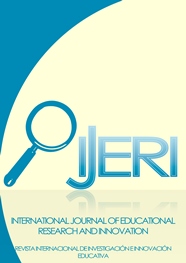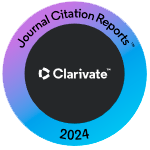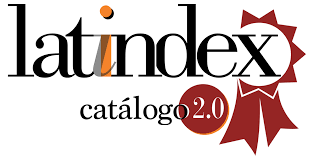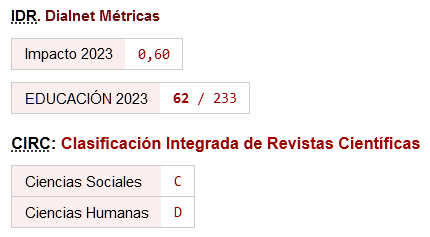The development of an Ecology of Resources for online English as a Foreign Language (EFL) teachers in a Japanese university during the COVID-19 pandemic
DOI:
https://doi.org/10.46661/ijeri.5356Keywords:
COVID-19, emergency remote teaching, English as a Foreign Language, Japanese universities, teacher developmentAbstract
English language teaching in Japanese universities can be described as having a very classroom-centered approach with relatively little online presence. Therefore, the transition to emergency remote teaching in April 2020 in response to COVID-19 was particularly challenging. This paper describes how the teaching staff in one English as a Foreign Language (EFL) department at a national university in Japan came together to support one another with various online guides and the creation of peer support groups. This activity is analysed in terms of the development of an Ecology of Resources (EoR) (Luckin, 2008) and an online Community of Practice (Lave & Wenger, 1991). The four collaborative documents and the peer support group that make up the EoR are described together with examples of this teacher development process. By partaking in the creation of the EoR teaching staff learned together how to teach online in an emergency context and this collaboration can be the basis for future online teaching in an institution where it had not happened before.
Downloads
References
Aoki, K. (2015). MOOCs and open education in Japan: The case of the Open University of Japan. In C.J. Bonk, M.M. Lee, T.C. Reeves & T.H. Reynolds (Eds.) MOOCs and Open Education Around the World (pp. 21-29). Abingdon, UK: Routledge.
Bozkurt, A., Jung, I., Xiao, J., Vladimirschi, V., Schuwer, R., Egorov, G., … Paskevicius, M. (2020). A global outlook to the interruption of education due to the COVID-19 pandemic: Navigating in a time of uncertainty and crisis. Asian Journal of Distance Education, 15(1), 1–126. https://doi.org/10.5281/zenodo.3878572
Canagarajah, A. S. (2012). Teacher development in a global profession: An autoethnography. TESOL Quarterly, 46, 258-279.
Cowie, N., & Sakui, K. (2014). Take your pick: Out-of-class, blended language and Web 2.0 projects, and online. The JALT CALL Journal, 10(3), 273-286. https://doi.org/10.29140/jaltcall.v10n3.180
Cowie, N., & Sakui, K. (2020a). Advice from the field: Tips for teaching online. Kobe JALT Journal, 2(1), 23-29.
Cowie, N., & Sakui, K. (2020b). Teacher and student-created videos in English Language Teaching. ELT Journal. http://dx.doi.org/10.1093/elt/ccaa054
Crawford, J., Butler-Henderson, K., Rudolph, J., & Glowatz, M. (2020). COVID-19: Twenty countries’ higher education intra-period digital pedagogy responses. Journal of Applied Teaching and Learning, 3(1). https://doi.org/10.37074/jalt.2020.3.1.7
Day, C. (1999). Developing Teachers: The Challenges of Lifelong Learning. London: Falmer Press.
Dewey, J. (1938) Experience and Education. New York: Kappa Delta Pi.
Ellis, R. (2008). The Study of Second Language Acquisition (Second Ed.). Oxford: Oxford University Press.
Goldie, J. (2016). Connectivism: A knowledge learning theory for the digital age? Medical Teacher, 38(10),1064-9. https://doi.org/10.3109/0142159X.2016.1173661
Goldstein, B. & Driver, P. (2014). Language Learning with Digital Video. Cambridge: Cambridge University Press.
González-Sanmamed, M., Estévez, I., Souto-Seijo, A., & Muñoz-Carril, P. (2020). Digital learning ecologies and professional development of university professors. [Ecologías digitales de aprendizaje y desarrollo profesional del docente universitario]. Comunicar, 62, 9-18. https://doi.org/10.3916/C62-2020-01
Hockly, N. (2015). Developments in online language learning. ELT Journal, 69(3), 308-13. https://doi.org/10.1093/elt/ccv020
Kolb, D. A. (1976). Learning Styles Inventory. Boston: McBer and Company.
Kolb. D. A. & Fry, R. (1975). Toward an applied theory of experiential learning. In C. Cooper (Ed.), Theories of Group Process (pp. 33-57). London: John Wiley.
Lave, J., & Wenger, E. (1991). Situated Learning: Legitimate Peripheral Participation. Cambridge: Cambridge University Press.
Luckin, R. (2008). The learner centric ecology of resources: A framework for using technology to scaffold learning. Computers & Education, 50, 449-462. https://doi.org/10.1016/j.compedu.2007.09.018
Miller, M. D. (2020). Going online in a hurry: What to do and where to start. The Chronicle of Higher Education. Retrieved from: https://www.chronicle.com/article/Going‐Online‐in‐a‐Hurry‐What/248207
National Institute for Digital Learning. (2020). Teaching Online – Resource Bank. Retrieved from: https://www.dcu.ie/nidl/resources/Swiftly-Moving-Online-Coronavirus.shtml
Poole, G. S. (2010). The Japanese Professor. Boston, MA: Sense.
Puentedura, R. R. (2010). SMAR and TPCK: Intro to Advanced Practice. Retrieved from: http://hippasus.com/resources/sweden2010/SAMR_TPCK_IntroToAdvanced Practice.pdf
Romeu-Fontanillas, T., Guitert-Catasús, M., Raffaghelli, J., & Sangrà, A. (2020). Mirroring learning ecologies of outstanding teachers to integrate ICTs in the classroom. [Ecologías de aprendizaje para usar las TIC inspirándose en docentes referentes]. Comunicar, 62, 31-42. https://doi.org/10.3916/C62-2020-03
Selwyn, N., & Jandrić, P. (2020). Postdigital living in the age of Covid-19: Unsettling what we see as possible. Postdigital Science and Education, 1-17. https://doi.org/10.1007/s42438-020-00166-9
Stanley, I. (2015). What impact does a change-agent have on faculty use of technology? The JALT CALL Journal, 11(2), 105-122. https://doi.org/10.29140/jaltcall.v11n2.187
Wang, S., Iwata, J., & Jarrell, D. (2018). Exploring Japanese students’ e-learning habits. The JALT CALL Journal, 14(3), 211-223. https://doi.org/10.29140/jaltcall.v14n3.231
Willems, J. (2019). Digital equity: Considering the needs of staff as a social justice issue. Australasian Journal of Educational Technology, 35(6), 150-160. https://doi.org/10.14742/ajet.5503
Williams, L. (2019). Working at a Japanese University: An Attractive Option for International Humanities PhDs? Retrieved from: https://www.tokyohumanities.org/uploads/4/1/9/6/419676/tokyo_humanities_insights_- _academic_careers_at_japanese_universities.pdf
Downloads
Published
How to Cite
Issue
Section
License
Copyright (c) 2021 Neil Cowie

This work is licensed under a Creative Commons Attribution-NonCommercial-NoDerivatives 4.0 International License.











